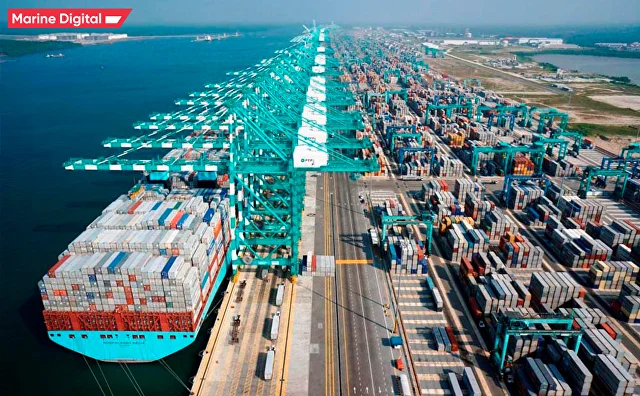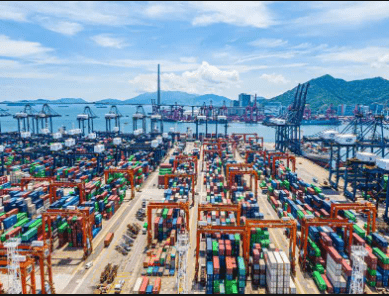Factors that least Influence Population Density in Nigeria – Nigeria is the most populated country in Africa and the ninth most populous country in the world, with a population of over 200 million. Despite having a large population, some areas of the country have a low population density due to many variables. These elements significantly influence population distribution and directly affect the nation’s political, social, and economic advancement.Information Guide Nigeria
We shall examine the main elements that have the least impact on Nigeria’s population density in this article. We will look at how these elements have impacted the population structure of the nation and the difficulties they present for decision-makers and developers. The goal of the paper is to give readers a thorough grasp of the problem and to highlight the necessity for Nigeria to implement a population management strategy that is both more successful and long-lasting.
Read Also: 10 Factors That Influence The Emergence Of Nationalism In Nigeria
What is Population?
The term “population” describes the total number of people or other living things in a certain geographic area, such as a nation, region, city, or town. It can also be used to describe the total population of a specific species within an environment. Population in demography refers to the study of human populations, which includes variables like size, growth, density, distribution, and age structure, as well as how these variables change over time as a result of migration, births, and deaths. Since the population has an impact on resource allocation and distribution, urban planning, and governmental policies, it is important in many disciplines, including economics, geography, and public policy.
What is Population Density?
The amount of people living in a given region is known as population density, which is commonly stated as the number of people per square kilometre or square mile. Understanding the population density within a specific geographic area is useful. Population density reveals details about where people are located and aids in determining whether a region is densely populated or sparsely populated. Making decisions about resource distribution, infrastructure development, and controlling the growth of cities and towns may all be done using this data.Factors that least Influence Population Density in Nigeria
Read Also: 10 Factors Affecting Tender Price in Nigeria
Types of population Density
There are various kinds of population density, such as:
- Arithmetic Density: This type of population density is the simplest to calculate and is obtained by dividing the total population of an area by the total area of its land.JAMB Portal
- Physiological Density: This kind of density considers the accessibility of food and other resources necessary for human survival. It is computed by dividing a region’s population by its total amount of arable land.
- Agricultural density measures the link between population and the area used for agriculture, much like physiological density does.
- Ecological Density: This kind of density considers the biotic potential of a region, which is influenced by the accessibility of resources like soil, water, and climate.
- A sort of density known as “agricultural-ecological density” combines the ideas of “agricultural density” and “ecological density,” taking into account both the quantity of land used for agriculture and the region’s biotic potential.
It’s important to note that these various measures of population density can be used in conjunction with one another to provide a more complete picture of population dynamics and trends.
Read Also: 10 Factors That Influence The Growth Of Commercial Activities In Nigeria
Factors that affect Population Density in Nigeria
Like in any other nation, Nigeria’s population density is influenced by many variables that can lead to an increase or reduction in the number of residents in a certain location. Here are 11 elements that influence Nigeria’s population density:NYSC Portal
- Natural resources
Places with a lot of natural resources, including oil, minerals, and fertile land, tend to have higher population density because more people flock there in search of jobs and other possibilities.
2. Climate
Some areas of Nigeria’s tropical climate are uninhabitable, which results in lower population densities. Higher population densities are typically found in areas with more temperate climates.
3. Agricultural Potential
Due to people’s attraction to areas with abundant food supply, agricultural zones with great potential for food production typically have higher population densities.
4. Economic Development
People are drawn to locations where they can find work and support their families, therefore areas with strong economies and job possibilities typically have higher population densities.
5. Infrastructure
Communities with excellent infrastructure, such as well-maintained roads, reliable water and electricity, and hospitals, typically have higher population densities because people are drawn to these areas for their high standard of living.Romantic Love Messages
6. Political Stability
People are more likely to settle in locations where they feel safe, hence areas with stable and secure political environments typically have higher population densities.
Read Also: 9 Factors Affecting Fish Farming in Nigeria
7. Education
Communities with strong educational systems typically have denser populations because families are drawn to places where their kids can get a decent education.
8. Health Treatment
Because people are more willing to settle in locations where they have access to high-quality medical care, areas with good healthcare facilities typically have greater population densities.
9. Religion
Because individuals are drawn to places where their religion can be practised freely, religious zones typically have higher population densities.Good Morning Love Message
10. Cultural Attractions
Nigeria is renowned for its diverse cultural legacy, which is seen in its music, dance, art, festivals, and religious rituals. These cultural attractions are important for drawing visitors to the nation and, in certain circumstances, for luring locals to move into the communities where these cultural events are held.
For instance, the city of Ibadan, which is situated in southwest Nigeria, is well-known for its yearly Ibadan Carnival, which draws thousands of tourists from all over the nation and the world. Along with other cultural attractions, this occasion may help the city’s population expand and the area’s population density.
Read Also: 10 Factors That Influence Quality Of Education In Nigeria
Conclusion
Nigeria’s population density is a complicated phenomenon influenced by a range of variables, including topographical, economic, social, and cultural considerations. The results of this study indicate that urbanisation, access to necessities, and employment opportunities have the least impact on Nigeria’s population density. The report also emphasises the necessity of enhancing these variables through policies and programs to support the nation’s balanced and sustainable development. To develop more livable and appealing communities, the government and other relevant stakeholders should strive toward providing enough infrastructure, enhancing access to basic services, and encouraging employment growth. This will contribute to a more equal and sustainable distribution of the population, as well as lessen the strain on crowded cities.
Check JAMB RESULT
Check and Confirm: How much is Dollar to Naira





